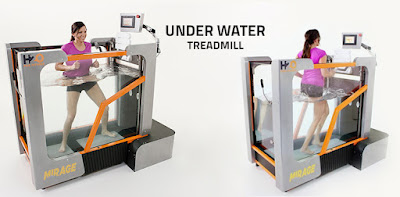Dive into Healing Waters: The Effectiveness of Aquatic Therapy for Neurological Patients
Aquatic therapy, also known as hydrotherapy, is a unique form of physical therapy that takes place in a water-based environment. This type of therapy has gained popularity in recent years, particularly for neurological patients. Neurological conditions such as stroke, multiple sclerosis, Parkinson's disease, and traumatic brain injuries can significantly impact a person's mobility and quality of life. However, research has shown that aquatic therapy can be a highly effective and safe treatment option for these patients. In this article, we will explore the benefits of aquatic therapy for neurological patients and how it can improve their overall well-being.
Relief from Muscle Spasticity:
Muscle spasticity is a common
symptom of many neurological conditions, characterized by involuntary muscle
contractions and stiffness. Aquatic therapy can help reduce muscle spasticity
by utilizing the buoyancy of water to support the body, reducing the effects of
gravity on the muscles. The water's hydrostatic pressure also provides
resistance against movement, helping to strengthen weak muscles and improve
coordination. As a result, aquatic therapy can help neurological patients
experience relief from muscle spasticity, allowing for smoother movements and
increased functional abilities.
Improved Balance and Coordination:
Many neurological patients
struggle with balance and coordination issues, which can lead to falls and
injuries. Aquatic
therapy can provide an environment where patients can safely practice
balance and coordination exercises without the fear of falling. The water's
buoyancy and resistance properties challenge the patient's balance and
coordination abilities while providing a safe and supportive environment. This
allows neurological patients to work on their balance and coordination skills
in a controlled setting, leading to improved balance and reduced fall risk in
their everyday life.
Enhanced Cardiovascular Fitness:
Aquatic therapy can also have a positive impact on cardiovascular fitness for neurological patients. Water provides a natural resistance to movement, which can increase the workload on the heart and lungs, making it an excellent form of low-impact cardiovascular exercise. Aquatic therapy can improve cardiovascular endurance, increase circulation, and help lower blood pressure, providing a holistic approach to overall health and well-being for neurological patients.
Reduced Pain and Increased Relaxation:
Chronic pain is a common issue for many neurological patients, and it can significantly impact their quality of life. Aquatic therapy can help reduce pain through its buoyancy and hydrostatic pressure properties. The buoyancy of water can relieve pressure on joints and reduce the impact on weight-bearing structures, resulting in decreased pain during exercises. The hydrostatic pressure of water can also have a relaxing effect on the nervous system, reducing muscle tension and promoting relaxation. This can help neurological patients experience pain relief and increased relaxation, leading to improved mood and overall well-being.
Increased Social Interaction and Motivation:
Neurological conditions can sometimes lead to social isolation and a decline in motivation. Aquatic therapy can provide a social and supportive environment for neurological patients to interact with therapists and peers, promoting socialization and motivation. Group aquatic therapy sessions can foster a sense of community and encourage patients to push themselves to achieve their goals in a fun and supportive atmosphere. The positive social interaction and motivation that aquatic therapy provides can have a significant impact on the psychological well-being of neurological patients.
Conclusion:
Aquatic therapy
is an effective and safe treatment option for neurological patients. It can
help improve muscle spasticity, balance and coordination, cardiovascular
fitness, pain relief, relaxation, social interaction, and motivation. The
unique properties of water make it an ideal environment for rehabilitation and
can provide numerous benefits for neurological patients to enhance their
overall well-being and quality of life. If you or a loved one is living with a
neurological condition, consider diving into the healing waters of aquatic
therapy for improved health and wellness. Consult with a qualified aquatic
therapist to see if this form.


Comments
Post a Comment